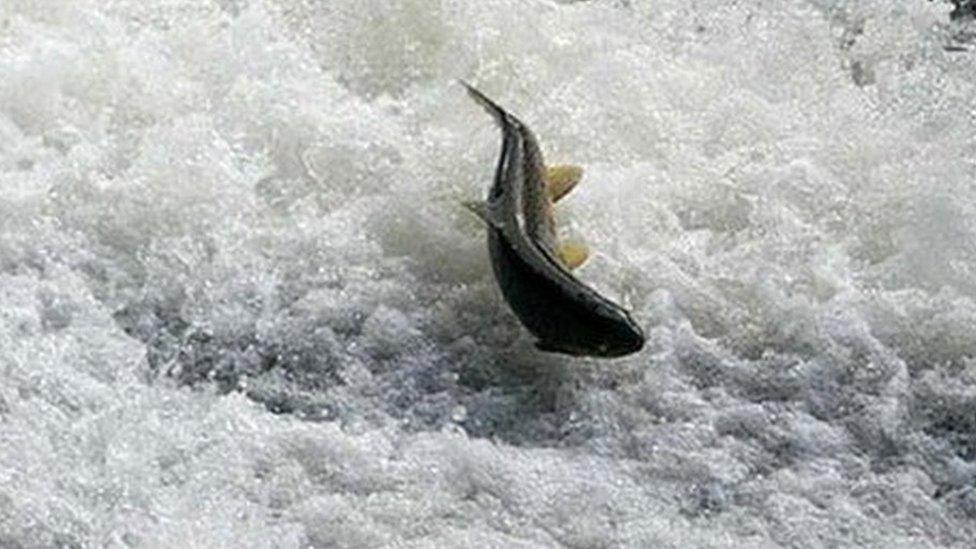Climate change: Wales' salmon population 'at risk'
- Published
Salmon are abandoning Welsh rivers, warn experts
Salmon are abandoning Welsh rivers because climate change is making the waters too warm, experts have said.
Few salmon eggs are being laid and in recent years no young salmon were found in most Welsh rivers.
Natural Resources Wales (NRW) and West Wales Rivers Trust said cold water fish such as salmon need water to be at or below 8C (46F) to be able to spawn.
Dave Charlesworth, from NRW, said salmon populations were "at risk", but sheltering rivers could help.
"In 2015, the winter river water temperatures didn't get down to 8C.
"There were grave concerns about the spawning activity and the following year we actually saw the juvenile fry numbers were virtually non-existent in Welsh rivers.
"This means populations are at risk in most Welsh rivers.
"South Wales and the southerly parts of the UK represent the southerly range of the species and the impact of climate change is being felt right now."
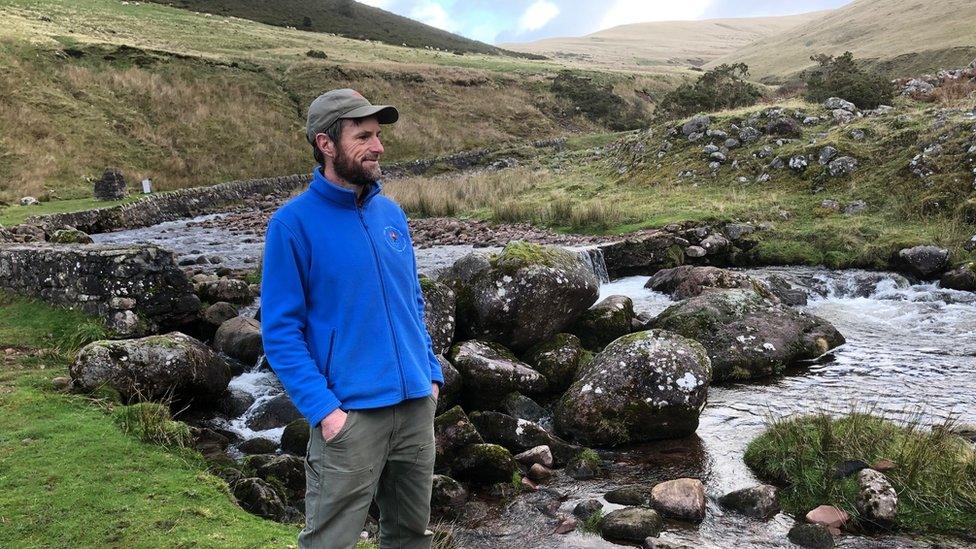
Ieuan Davies said the trust was planting trees "strategically" along the river
In an attempt to keep the water cool, West Wales Rivers Trust, NRW and Welsh Water have launched a tree-planting campaign concentrating on the pools and areas of gravel where salmon like to lay their eggs.
West Wales Rivers Trust's fisheries officer Ieuan Davies said: "We are looking at an increase in air temperatures of two to four degrees on average over the next couple of decades so it is important that the pool areas on the upper tributaries are protected from the full sunlight.
"We are planting trees strategically along the rivers to shelter the pools.
"That will help massively in improving the survival rates.
"The fish will lay up in the pools. They will have that bit of shelter there and that will help massively."
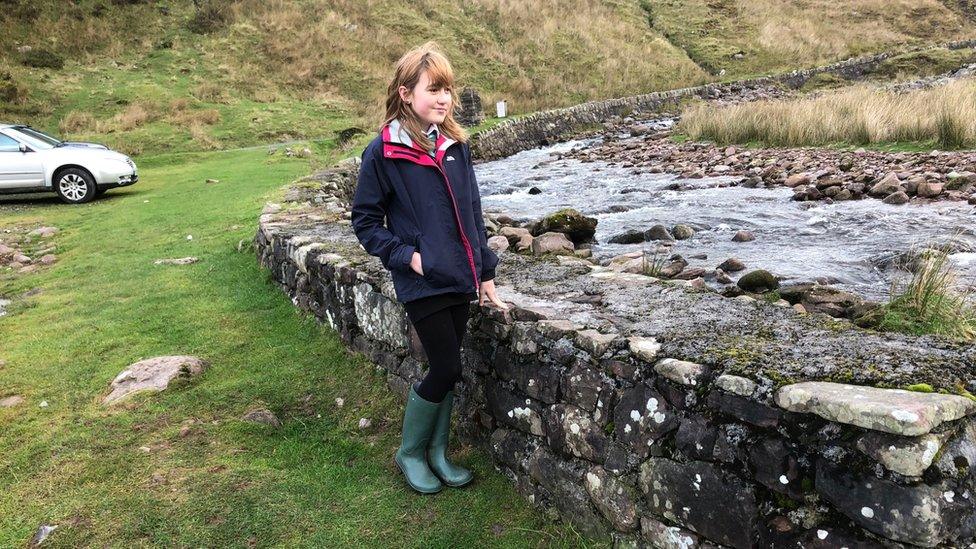
Elsie Procter-Jones said the scheme was "very important"
Local communities are now being encouraged to "adopt a river", gathering discarded plastic, unblocking storm-created blockages and helping to plant trees.
Elsie Procter-Jones, 13, who lives alongside the River Sawdde - a tributary of the River Towy, said her and friends have volunteered to help plant trees and keep the river clear of plastic and rubbish.
"I don't think most people realise what is happening. This is very important," she said.
- Published8 August 2019
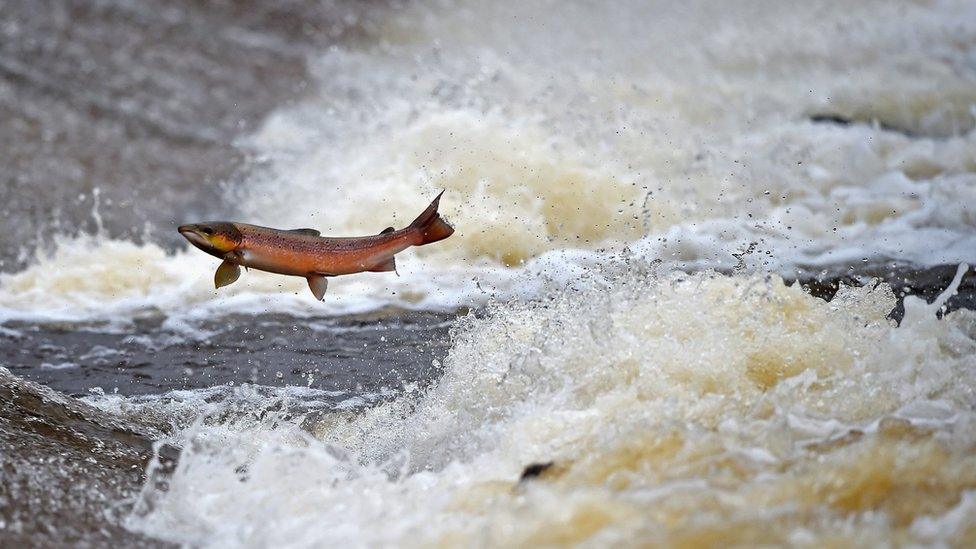
- Published8 September 2018
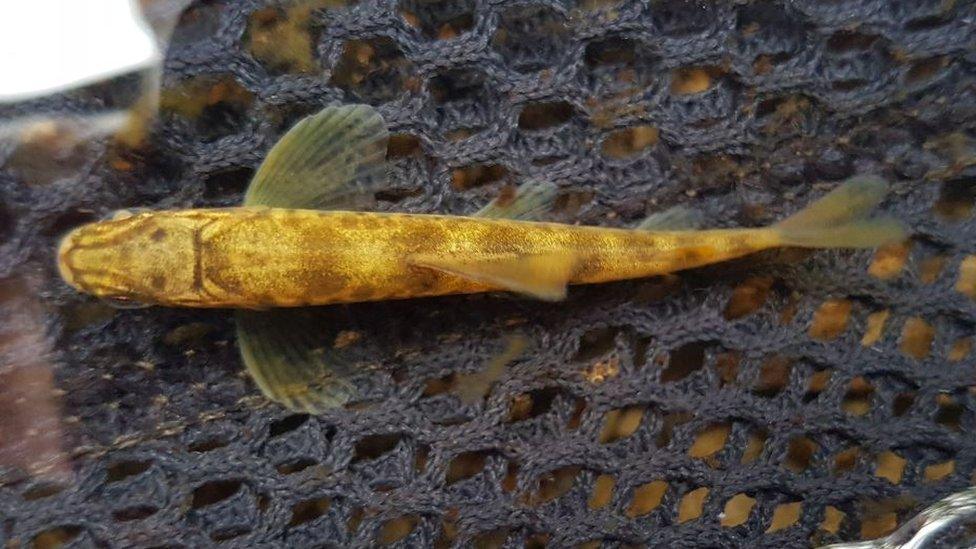
- Published22 August 2017
